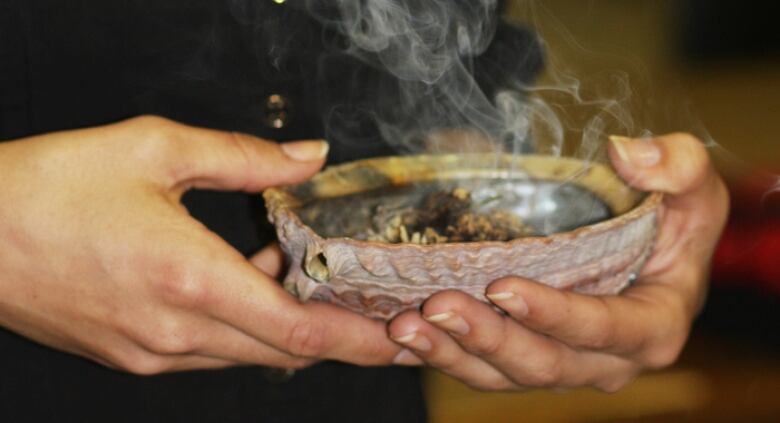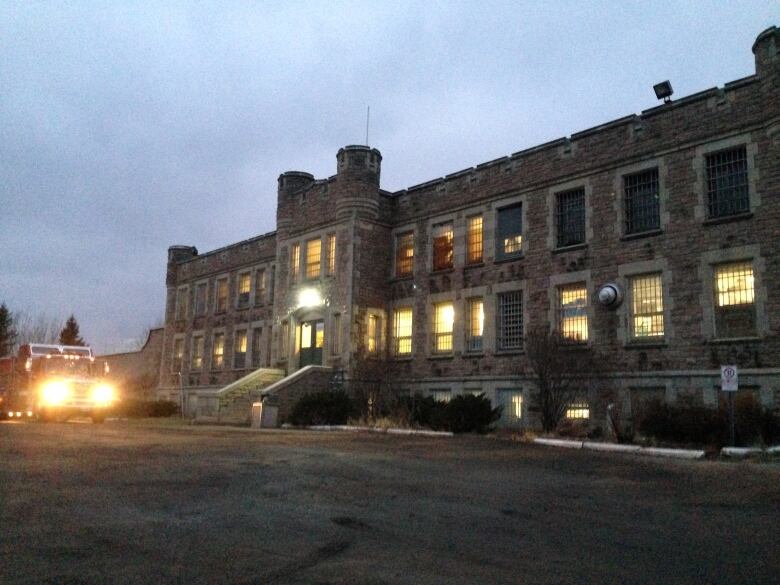Report on Ontario corrections reform recommends more access to Indigenous spiritual supports
Recommendation calls for Indigenous elders to have same status in jails as other religious leaders

A new report on reforming Ontario's corrections system is calling on the province to do a better job following through on its own policies covering the accommodation of Indigenous spirituality in jails and correctional centres.
The final report by Howard Sapers, the province's independent adviser on corrections reform, makes 62 recommendations across many parts of the system, and calls for a new Ontario Corrections Act.
It follows an interim probe released in May that dealt specifically with the use of solitary confinement.
-
Ontario's corrections adviser urges 'profound' changes to segregation practices
-
Former prison watchdog says it's time to scale back on segregation in Ontario
While Sapers' most recent findings credited Ontario with having guidelines which provide inmates "access to their traditional spiritual practices" and guarantees those practices "the same status and protections afforded to other faith groups," the report and other legal experts say the reality can be quite different.
"This is a constant issue ... access to Indigenous medicines, access to elders, this is something that always comes up across the province," Jonathan Rudin, the program director for Aboriginal Legal Services in Toronto, told CBC News.

Sapers' report noted that not all facilities have appropriate space for inmates and elders to meet and even if they do, some ceremonies like smudging a cleansing ritual where traditional plant medicines are burned may not be allowed.
"It's really a challenge because each institution sets its own rules,"Rudinsaid. "So even though the ministry may have guidelines ... the way they're actually implemented depends on each institution."
That's assuming an Indigenous person, whether having been convicted of a crime or still in pre-trial custody, can even access those spiritual supports an issue that the report, and some lawyers, have flagged.
"It just shouldn't be that way," said Rudin

The report credited Central North Correctional Centre in Penetanguishene, Ont., with having a formalized contract with an elder for services, while noting that the Algoma Treatment and Remand Centre in Sault Ste. Marie and the Thunder Bay Correctional Centre have elders attend on a "routine basis."
Everywhere else, the report stated, inmates mustmake a request through a staff member or the facility's chaplain, who then attempts to find an elder and coordinates the visit.
That "ad hoc" arrangement, the report said, "can be seen as degrading," and reinforces "the notion that Indigenous spirituality and culture are inferior" and calls to mind the church's history in the residential school system, something Rudin agreed with.
Recommendations call for change
A new corrections act should include language that addresses these issues, the final report said; its recommendations included measures like:
- A requirement that all reasonable steps are taken to ensure the services of an Indigenous spiritual leader or elder is available;
- A provision affirming that Indigenous spiritual leaders have the same status as those of other religions in institutions;
- A requirement that each institution provides inmates with regular access to elders in an appropriate space and that space be made available for ceremonies like smudging;
- Sufficient funding to allow for institutions to have enough staff (Native Inmate Liaison Officers and Inuit Liaison Workers) who provide and coordinate services for inmates;
- A requirement that an Indigenous advisory committee be established to advise on provision of correctional services to Indigenous inmates.
The importance of having access to culturally-appropriate spiritual supports while in an institution is important, Rudin said, adding that Sapers' report has the potential to do a lot of good.

The province, which called for the report, said on Tuesday that it welcomed the findings.
"Our government is committed to addressing all the recommendations and moving forward with the transformation of the province's correctional system," Marie-France Lalonde, Ontario's minister of community safety and corrections was quoted as saying in a written release.
"Ontario remains committed to safeguarding human rights and ensuring the safety of individuals placed in the correctional system."
Lalonde later told reporters that the new legislation would encompass a "rights-based approach" to corrections that is largely absent from the current regime.
Rudin said the recommendations in the report, if acted upon, could do a lot of good for Indigenous people in custody.
"I am very hopeful that the province will be committed to making the changes," he said. "I see no reason why they wouldn't be committed but we'll obviously wait and see what actually happens."
With files from Jody Porter












_(720p).jpg)


 OFFICIAL HD MUSIC VIDEO.jpg)
.jpg)



























































































